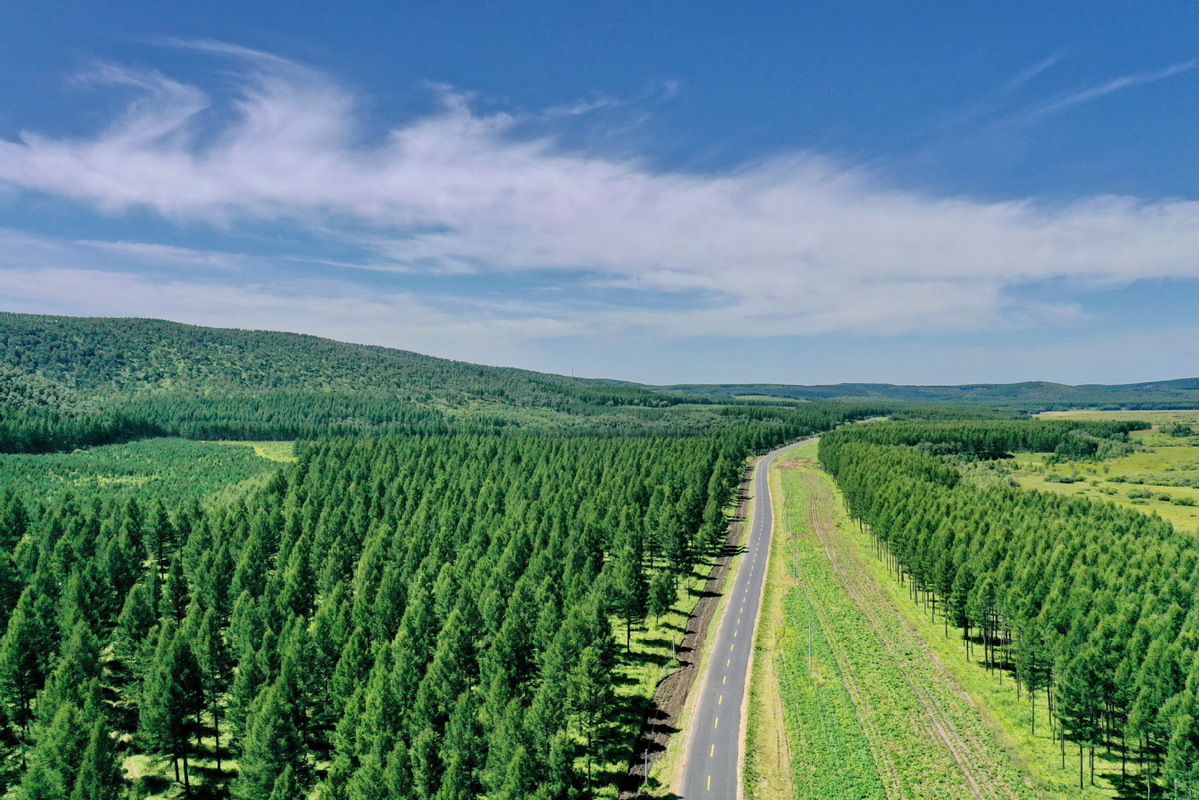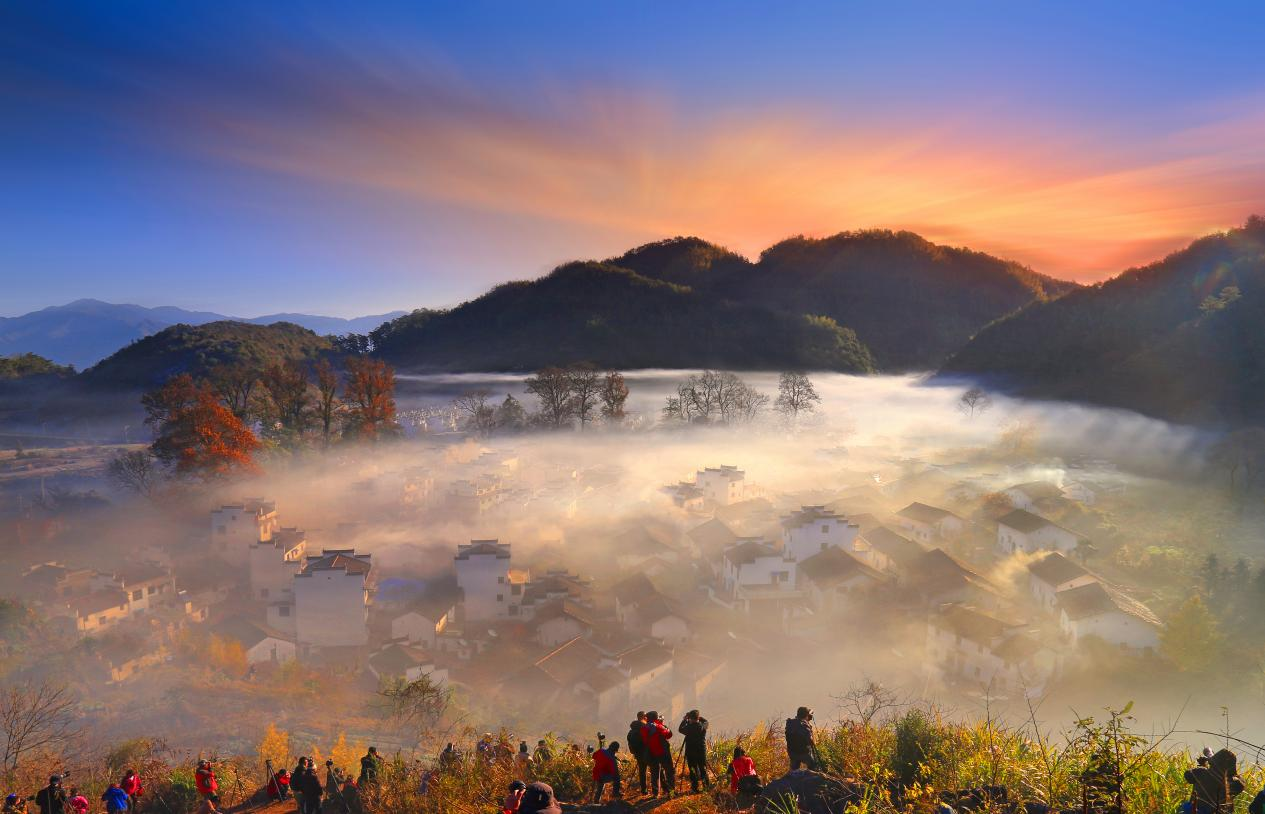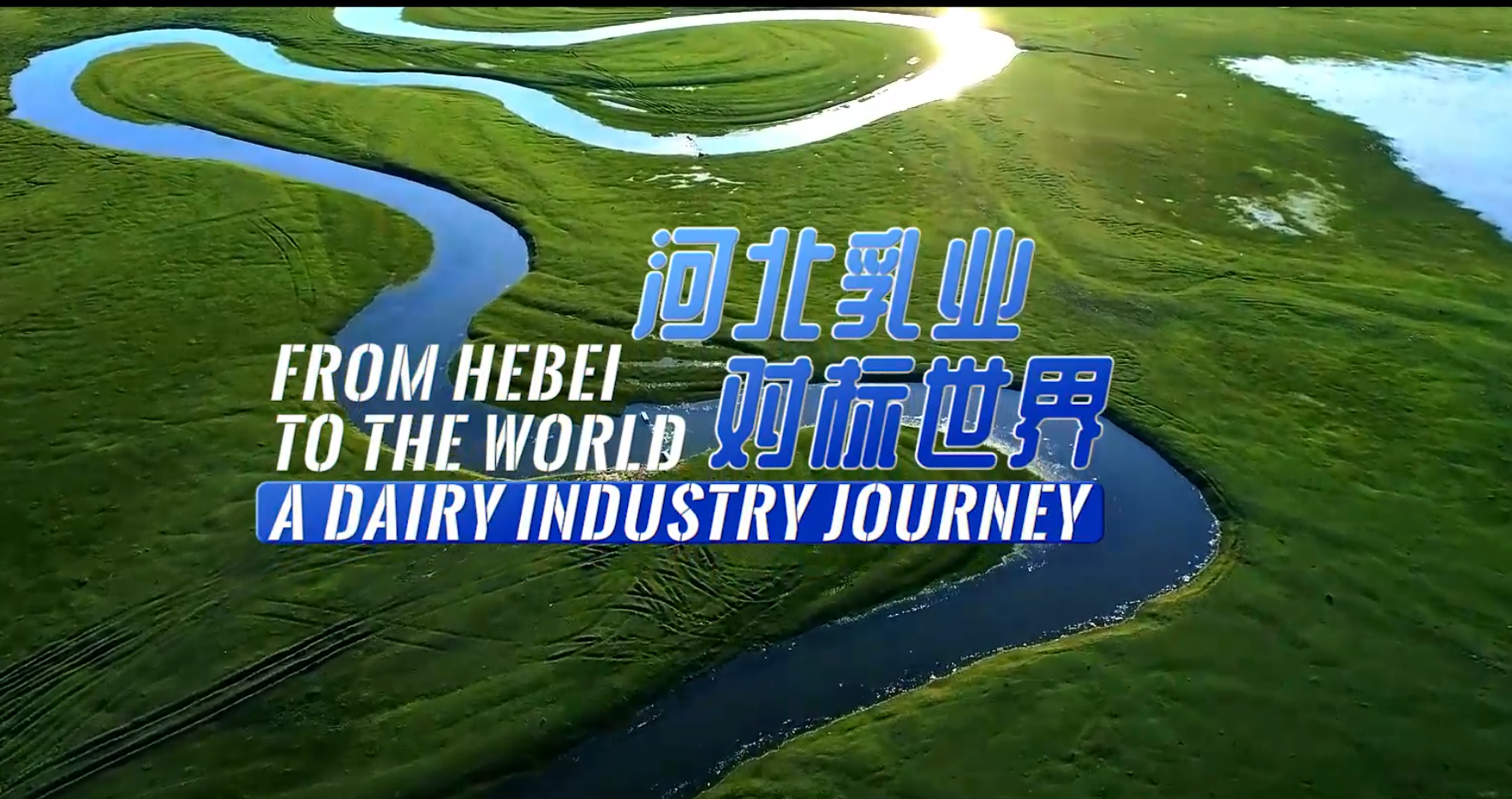
Aerial photo taken on Aug 23, 2021 shows the scenery of Saihanba forest farm in North China's Hebei province. (Photo/Xinhua)
While some foreigners might regard China's insistence on the construction of an "ecological civilization" as merely paying lip service to environmental and ecological protection, the remarkable changes that the country has made in that regard over the past decade prove otherwise. Such obvious changes as the disappearing of the smog and polluted waters that previously plagued the country represent only the most visible aspects of the country's efforts to build a beautiful China for future generations and bring tangible benefits to the Chinese people today.
Those endeavors have entailed a paradigm shift in the country's development model. The shift that prioritizes the three defensive battles for a blue sky, clear water and clean land is a painful and ongoing process. But the gains are worth the pain. The former extensive type of development would have become increasingly unviable as the environmental costs it was incurring outweighed the economic benefits. In 2012, China's energy consumption per unit of gross domestic product was 2.5 times the world average. In other words, as a global manufacturing center, China was sacrificing its future for short-term growth.
It became increasingly clear that the country needed to get out of what was a deceptive "comfort zone" before it became a frog-boiling-in-a-pot scenario. The consensus that it was time for a change provided the country's leadership with strong national support to introduce a series of laws, policies and practices to transform that desire into concrete actions.
It is the efficiency of the nation's governance system as well as the leadership's ability to view the bigger picture, and plan and coordinate actions accordingly that have ensured the best solutions are in place for the ecological protection and restoration from mountain tops to the seas, desertification is being checked and national parks are being established to protect and boost the nation's rich biodiversity.
With ecological and environmental indicators being included into the criteria for evaluating the performance of local governments, and relevant laws and regulations revised, the pursuit of green development has become a measurable task, and one for which the persons in charge can be held accountable for grave mistakes, prevarication or any other form of malpractice. Thanks to such initiatives, the country has also made remarkable progress in reducing its energy consumption, promoting clean technology and applying green technology.
However, as President Xi Jinping pointed out in a meeting of the central authorities on ecological civilization held in Beijing on Tuesday, the structural, root and trend pressures on ecological and environmental protection have still not been fundamentally relieved. The construction of an ecological civilization is still in a critical period. But Xi stressed that the country never compromise its green development because of the downward pressure on its economy. Building a beautiful China is integral to the goal of becoming a modern socialist country.
Therefore, the country must double down on the fast development of the green economy, finance, technology and industries, and foster the prosperity of such service sectors as tourism and green consumption, turning them into major growth drivers.
Editor: Li Shi






